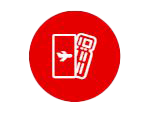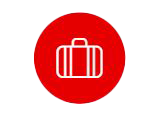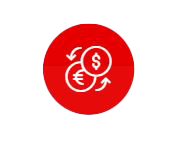Modern travel retailing, enabled by offers and orders and enhanced with AI/ML solutions, presents new ways for agencies to interact with customers. To capitalize on new opportunities and stay competitive, agency leaders should consider implications to their tried-and-tested business strategies.

Value proposition and service offerings
The reason why travelers choose travel agencies is evolving. Although price sensitive travelers and corporations are here to stay, agencies will need to move from transactional to holistic relationships with customers: competing with other sellers and suppliers beyond the cheapest price (fares and fees) and adding even more value across travelers’ journeys.
In the short to medium term, early adopter agencies using modern retailing capabilities will have an advantage. Once new capabilities enter the marketplace, agencies can reposition themselves to focus on personalized offers, dynamic packages, on-demand AI-generated itineraries, and self-service and automated booking management. It’s up to agency leaders to decide how quickly and to what extent they adopt and adapt to modern retailing.

Questions to consider…
- Where is your agency on the diffusion of innovation curve? Innovator, early adopter, early majority, late majority, laggard?
- Which aspects of your value proposition have the most impact on revenue, profit, and customer satisfaction scores? How could these be enhanced with modern retailing capabilities?
- Who are your key competitors (sellers and suppliers) and how fast are they innovating?
Customer acquisition and loyalty tactics
The way agencies acquire, convert, and retain customers will evolve – and so will the costs. The battle of paid search engine keywords isn’t going away any time soon, but agencies’ marketing strategies will need to complement this approach with more brand awareness campaigns. Instead of chasing ‘quick wins’, agencies can attract higher value and more loyal customers by highlighting the value of personalized travel experiences, dynamic packages for niche segments, and showcasing new product offerings.
Building and maintaining loyalty is notoriously difficult and expensive: it’s very easy for travelers to switch between travel sellers. In the future, agencies can nurture loyal customers by engaging with them in more meaningful, relevant ways at more touchpoints. Put simply, better experiences lead to more loyalty and a one-size-fits-all approach won’t cut it.

Questions to consider…
- Which acquisition channels provide the best return on investment today?
- How much is your cost of acquisition for new customers vs. reward and engagement for repeat customers?
- What is your customer lifetime value and how has this evolved in recent years?
Product scope beyond flights and traditional ancillaries
Modern travel retailing capabilities enable airlines to sell new products beyond seats and bags via third party sellers. New offers could include lounge access, in-flight Wi-Fi and entertainment, co-working spaces, ground transportation, e-sims for destinations, corporate hospitality experiences, and more. These offers can be tailored and bundled based on shopping behavior and defined or inferred trip purpose and customer segments.
Richer content displays showing descriptions, pictures, videos, and reviews will add transparency to the shopping process and make it easier for customers to compare options. This is in addition to more sustainability options entering the shopping experience: carbon offsetting, multi-modal itineraries, eco-friendly accommodations, and environmental impact information.

Questions to consider…
- Which core products and ancillaries are most profitable for your agency?
- Which new products do your customers need, and which do they want?
- Which upsell and cross-sell products deliver the best results for you today?
Supplier contracts and partnerships for new ancillaries and non-air products and services
The technological evolution of modern retailing gives agencies the opportunity to evaluate relationships with suppliers and partners. Proactive agency leaders will evaluate the terms of partnerships to reflect the value they add by selling new content (i.e. beyond flights and traditional ancillaries) and sharing more customer data with suppliers to generate personalized offers.
Reviewing partnerships isn’t just about existing relationships, agencies should also think about new opportunities to add breadth and depth to their product offerings. New partnerships could include new airlines, excursions and activities providers, ride-hailing and other ground transportation services, fintech solutions like price prediction and fare protection. As pressure mounts from travelers and wider society into travel sustainability, partnerships may undergo greater scrutiny into their corporate social responsibility practices.

Questions to consider…
- When did you last review and update terms with suppliers?
- Do your existing contracts reflect emerging modern retailing capabilities (i.e. dynamic pricing, new ancillaries, costs associated with servicing complex bookings, etc.)?
- What safeguards or gaps exist in contracts to protect customer data and privacy in preparation for expanded data sharing between agencies and suppliers?
Retailing and communication opportunities throughout the customer journey
The customer journey is set for a refresh as travel agencies use deeper data insights and artificial intelligence and machine learning algorithms to predict the relevance, timeliness, and conversion likelihood of offers and communications beyond the initial booking stage. To make these activities more effective, agencies should consider a breadth of data points: past purchase behavior, frequent flyer entitlements, industry and segment data trends, travelers’ staggered booking behavior, and traveler preferences (stated, inferred, and revealed).
While upselling and cross-selling is possible today, personalization, fulfillment and servicing will be streamlined. In future, agencies can tailor post-booking offers for seat or cabin upgrades, insurance, lounge access, hotels, and more. During travelers’ trips, agencies can provide self-service change/disruption management, on-demand concierge for duty of care responsibilities, personalized offers for excursions or hospitality activities, and alerts for political unrest or health warnings. Finally, agencies can automate collecting reviews post-trip to improve services and share personalized recommendations and incentives for future bookings.

Questions to consider…
- Which parts of travelers’ journeys do customers book with you (i.e. flights, accommodation, extras)?
- What are the engagement rates and conversion rates of email and/or in-app notifications through your customers’ journeys today?
- Do customers trust your brand to safeguard and appropriately process their data in new ways?
Achieve modern retailing success with Sabre
Modern retailing capabilities are entering the marketplace and the value to agencies is still emerging. Although the true impact of innovation isn’t clear, new business strategies will undoubtedly be needed for agencies to stay competitive. Sabre supports leisure agencies, travel management companies, and online travel agencies to achieve modern retailing success with a strong foundation of travel content, end-to-end solutions, innovations and partnerships. It’s up to agency leaders to start planning and choose the combination of tools and capabilities that matter to them and their customers.

New content and intelligent capabilities. We aggregate and normalize travel content from hundreds of suppliers to give customers a broad choice of relevant, tailored options. This includes millions of lodging properties and hundreds of airline options, including traditional EDIFACT and NDC content (15 live airlines and 35+ in the pipeline).
As suppliers make new content available, including personalized offers and non-traditional ancillaries, we roll it out to agencies. This content is underpinned by our intelligent retailing capabilities, customizable fares, and automated commission calculations to optimize revenue every time.

Efficient distribution, automation, and payments solutions. Accessing end-to-end capabilities is crucial for agencies to build modern retailing experiences. That’s why we offer a suite of tools for every agency: Sabre Red 360 – an intuitive point of sale interface for agents; GetThere – a comprehensive corporate booking tool; and Sabre travel APIs – extensive, flexible APIs to power travel shopping, booking, servicing, and fulfillment.
To help scale operations and lower servicing costs, we also offer smart automation solutions to quickly manage notifications, exchanges, refunds and more, even during peak times. To complete the end-to-end coverage, the newly introduced Sabre Virtual Payments helps agencies get more value from every transaction with improved cashflow, revenue from rebates, and automated reconciliation.

Transformative innovations and strategic partnerships. Modern retailing wouldn’t be possible without continuous innovation and strong industry collaboration. Notably, our 10-year partnership with Google includes a cloud platform migration to provide a robust and scalable infrastructure and access to capabilities that power the world’s largest consumer travel products. We’re also co-innovating to solve agencies’ toughest challenges like improving search response times with an incredibly fast shopping cache and combining Google-powered AI/ML tools with Sabre’s rich data to unlock conversion and revenue opportunities.
To make sure innovations address agencies’ unique needs and reflect their value in the ecosystem, we regularly invite our customer advisory board to share feedback, host workshops and attend industry events, and advocate for agencies at IATA working group meetings.
Discover more in ‘Nine questions on modern retailing for agency leaders to ask themselves’ and look for insights into the organizational and technological considerations coming soon.
About the Author
Jonny Blackler is part of the Sabre team exploring what the future of travel will look like, what it means for travel agencies, and how agencies can transition their businesses to make the most of emerging technologies.
